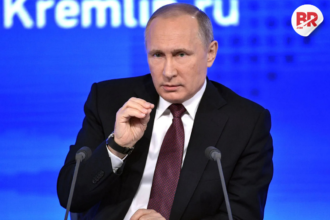
President Donald Trump has started an investigation to decide whether the U.S. should impose new tariffs on critical minerals. This is the latest step in his ongoing trade war that targets important sectors of the global economy.
The order, signed by Trump on Tuesday, directs the Secretary of Commerce to start an investigation under the Trade Expansion Act of 1962. The goal is to see how imports of these minerals affect America’s national security. The White House explained that if the Secretary of Commerce finds that these imports threaten U.S. security, President Trump could impose tariffs instead of the current duties announced earlier this month.

The investigation focuses on critical minerals such as rare earth elements, which are vital for making defense equipment like jet engines, missile guidance systems, computers, radar, and communications tools. It also includes uranium and processed critical minerals, as well as products made from these minerals.
Read More: How Trade Tariffs in 2025 Are Disrupting Supply Chains and Investment Strategies
The Secretary of Commerce is expected to complete the investigation and deliver results in 270 days. Trump had already suggested this action, signaling that his administration might impose tariffs on critical minerals, following similar tariffs on steel, aluminum, automobiles, and car parts. Recently, the administration also started investigating imports of semiconductors and pharmaceuticals.
Trump had also used emergency powers last month to increase the U.S.’s ability to produce critical minerals. This plan is part of a larger effort to make the U.S. less dependent on foreign minerals. The order aims to help finance and support domestic processing of these minerals.
Although the U.S. has some critical minerals, it still imports a large amount, creating risks for both the economy and national security. The U.S. relies heavily on imports of at least 15 critical minerals, with 70% of rare earth imports coming from China. These minerals are used in defense, electronics, batteries, and other important technologies.
The investigation is coming at a time when China has imposed new export restrictions on rare earth minerals, which could affect the U.S., Europe, and Japan. These minerals are used in displays, magnets, and medical technologies.
Trump has used tariffs to try to boost U.S. manufacturing and energy production, and to bring in more revenue for the government. However, many markets are concerned that these tariffs could lead to higher prices, disrupt global supply chains, and even harm the world economy.
Also See: Sensex Nifty Rally: Tariff Hopes and Monsoon Optimism Ignite Market Surge
Earlier this month, Trump paused higher tariffs on about 60 U.S. trading partners, giving them time to negotiate new deals. However, the president has continued with his sector-specific tariffs, including the investigation into critical minerals.












